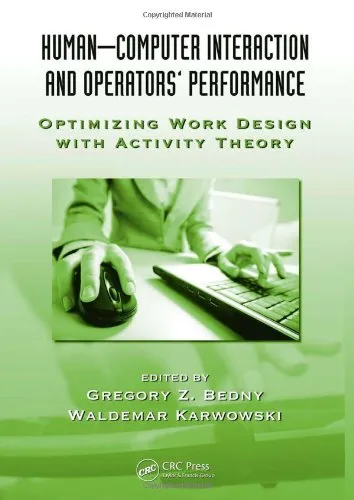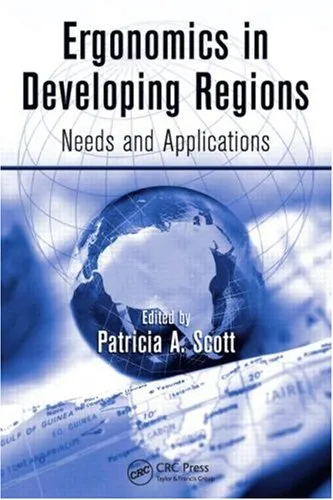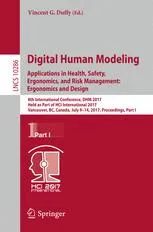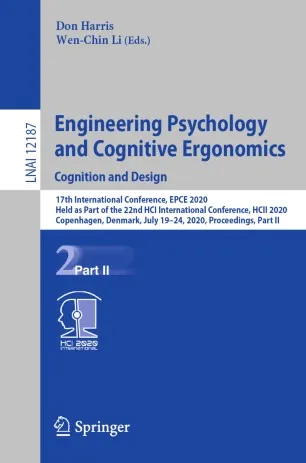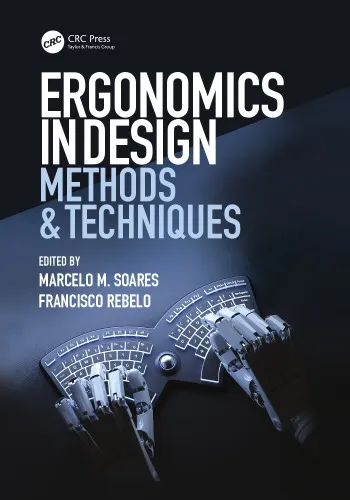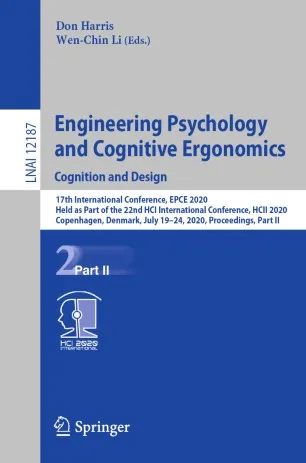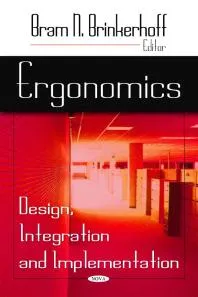Human-Computer Interaction and Operators Performance: Optimizing Work Design with Activity Theory (Ergonomics Design and Management: Theory and Applications)
4.0
Reviews from our users

You Can Ask your questions from this book's AI after Login
Each download or ask from book AI costs 2 points. To earn more free points, please visit the Points Guide Page and complete some valuable actions.Related Refrences:
Introduction to "Human-Computer Interaction and Operators Performance: Optimizing Work Design with Activity Theory"
"Human-Computer Interaction and Operators Performance: Optimizing Work Design with Activity Theory" is a groundbreaking exploration into the dynamic interplay between humans and computer systems, emphasizing the importance of optimizing work environments through the lens of Activity Theory. Authored by Gregory Z. Bedny and Waldemar Karwowski, this book serves as a critical resource for human factors engineers, ergonomics practitioners, and designers striving to enhance system performance and workplace efficiency. By combining theoretical insights with practical applications, the book addresses how cognitive, psychological, and operational factors influence human-computer interactions and overall operator performance.
The text revolves around the principles of Activity Theory—a psychological framework that focuses on understanding human actions in context. Leveraging this theory, the authors provide readers with tools to assess and redesign work environments to improve productivity, reduce errors, and minimize mental strain. The book aims to bridge gaps between theory and practice in fields such as HCI (Human-Computer Interaction), cybernetics, work design, and cognitive ergonomics.
Detailed Summary of the Book
The book begins by introducing fundamental concepts from Activity Theory and demonstrates its applicability to the study of human-computer interactions. Activity Theory's systemic approach unveils how operators' mental processes and actions are influenced by their interactions with technology and organizational settings.
Throughout the chapters, the authors methodically dissect activities into hierarchical structures, revealing the relationships among goals, tasks, and operations. They emphasize the importance of understanding human cognitive architecture—memory, problem-solving, attention, and decision-making—as integral to improving operator performance. This is essential for ensuring that software and hardware systems align with user needs and capabilities.
The book balances theoretical depth with practical case studies across various industries where human-computer interaction plays a crucial role. For instance, applications in manufacturing, aviation, and healthcare illustrate how optimized work design can prevent errors and improve safety. By correlating human error theories to interaction frameworks, the authors pave the way for innovative solutions to real-world challenges.
Moreover, the book delves into dynamic systems analysis, which evaluates how operators adapt to changes in technology, organizational goals, and external factors. It provides concrete methodologies for assessing work systems and redesigning tasks to enhance human and machine collaboration.
Key Takeaways
- Activity Theory serves as a robust framework for analyzing complex systems involving human-computer interaction.
- A deeper understanding of operators' cognitive processes can lead to more effective and user-friendly system designs.
- Work optimization requires an interdisciplinary approach, combining psychology, ergonomics, and systems engineering.
- Real-world case studies demonstrate the practicality of the methods outlined in the book.
- The integration of dynamic systems theory ensures adaptability in rapidly changing technological landscapes.
Famous Quotes from the Book
"Work is not simply a series of tasks; it is a dynamic interplay of cognitive strategies, tools, and environmental conditions."
"The true efficiency of any system lies in its ability to adapt to human variability."
Why This Book Matters
"Human-Computer Interaction and Operators Performance" is essential reading for professionals and researchers aiming to navigate the complexities of modern work systems. As technology becomes increasingly integrated into everyday tasks, the need to harmonize human potential with technological capabilities has grown exponentially.
This book provides a structured approach to designing systems that are not only efficient but also user-centered and adaptable. By exploring the foundations of Activity Theory and presenting actionable recommendations, the authors empower readers to rethink traditional approaches to workplace ergonomics and HCI.
Whether you are a system designer, an ergonomist, or an academic in the fields of cognitive science or human factors, this book equips you with the knowledge and tools to ensure that technology serves its ultimate purpose: enhancing human performance and well-being.
Free Direct Download
You Can Download this book after Login
Accessing books through legal platforms and public libraries not only supports the rights of authors and publishers but also contributes to the sustainability of reading culture. Before downloading, please take a moment to consider these options.
Find this book on other platforms:
WorldCat helps you find books in libraries worldwide.
See ratings, reviews, and discussions on Goodreads.
Find and buy rare or used books on AbeBooks.
1346
بازدید4.0
امتیاز0
نظر98%
رضایتReviews:
4.0
Based on 0 users review
Questions & Answers
Ask questions about this book or help others by answering
No questions yet. Be the first to ask!
